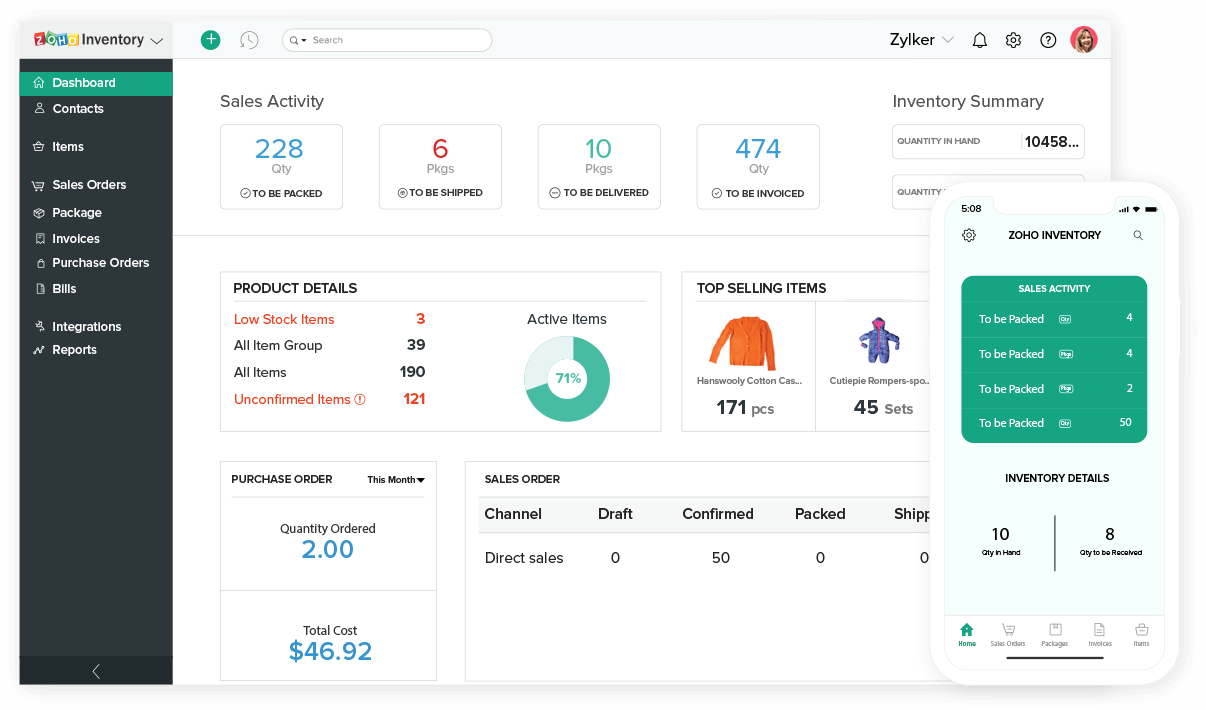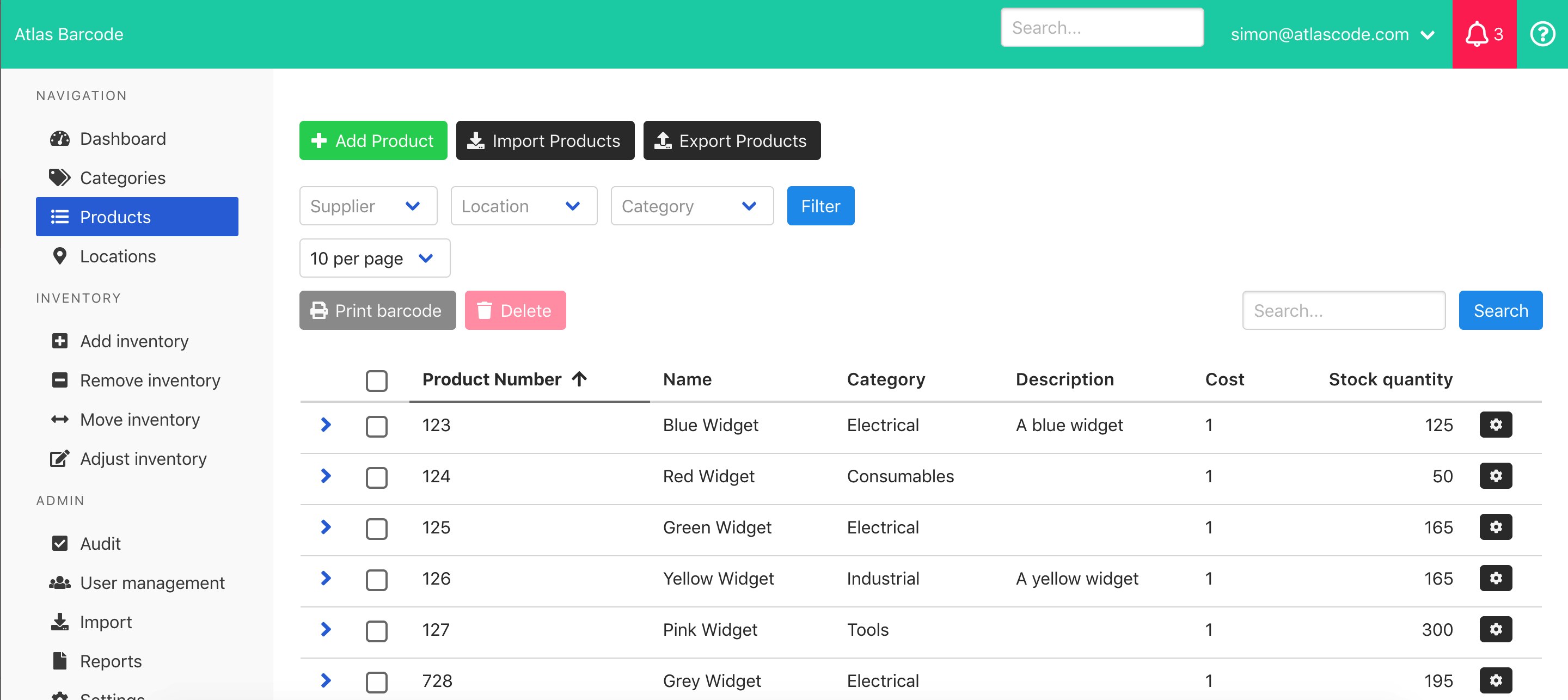Discover the world of small business accounting software with inventory management, a powerful tool that revolutionizes financial and inventory processes for small businesses. With its robust features and user-friendly designs, this software empowers entrepreneurs to manage their finances and inventory with greater efficiency and accuracy.
From real-time inventory tracking to seamless accounting integrations, this software offers a comprehensive solution for businesses seeking to optimize their operations. Read on to explore the benefits, features, and considerations of small business accounting software with inventory management.
Overview of Small Business Accounting Software with Inventory Management

Small businesses face unique challenges in managing their finances and inventory. Specialized accounting software can help them overcome these challenges by automating tasks, providing insights into financial performance, and streamlining inventory management.
There are many different small business accounting software options available, each with its own features and benefits. Some of the most popular options include QuickBooks, Xero, and Sage 50cloud. These software programs offer a range of features, including:
- General ledger accounting
- Invoicing and billing
- Accounts receivable and payable
- Inventory management
- Financial reporting
Cloud-Based vs. On-Premise Solutions
Small businesses have the option of choosing between cloud-based and on-premise accounting software. Cloud-based software is hosted on a remote server and can be accessed from anywhere with an internet connection. On-premise software is installed on the business’s own computer system.
There are pros and cons to both cloud-based and on-premise solutions. Cloud-based software is typically more affordable and easier to use than on-premise software. It also offers greater flexibility and scalability. However, cloud-based software can be less secure than on-premise software, and it may not be suitable for businesses with sensitive data.
Inventory Management Features

Inventory management software provides comprehensive capabilities for tracking and managing inventory levels, ensuring businesses have the right products in stock to meet customer demand while minimizing waste. These software solutions offer real-time updates on inventory levels, enabling businesses to make informed decisions and avoid stockouts.
Stock Level Management
Inventory management software empowers businesses to monitor stock levels in real-time, providing accurate information on the quantity of each item available. This allows businesses to optimize stock levels, preventing overstocking or understocking. Automated reordering functionality ensures that businesses maintain optimal stock levels, automatically generating purchase orders when inventory falls below predefined thresholds.
Inventory Valuation
Inventory valuation is crucial for determining the value of a business’s inventory assets. Inventory management software simplifies this process by providing various valuation methods, such as First-In, First-Out (FIFO), Last-In, First-Out (LIFO), and Weighted Average Cost (WAC). These methods help businesses accurately calculate the cost of goods sold and maintain accurate financial records.
Accounting Integrations

Small business accounting software with inventory management capabilities seamlessly integrates with accounting systems, automating various accounting functions and ensuring a smooth flow of data between these two critical business processes.
This integration eliminates manual data entry, reduces errors, and provides real-time visibility into financial and inventory data. As a result, businesses can make informed decisions, streamline operations, and improve profitability.
Automated Accounting Functions, Small business accounting software with inventory management
- Accounts Payable: Automatically generate and track purchase orders, invoices, and payments to vendors.
- Accounts Receivable: Manage customer invoices, track payments, and generate statements.
- General Ledger: Post inventory transactions, such as purchases, sales, and adjustments, to the general ledger.
- Financial Reporting: Generate financial statements, such as balance sheets and income statements, that include inventory-related data.
Benefits of Seamless Data Flow
- Improved Accuracy: Automated data transfer eliminates manual entry errors, ensuring data integrity and reliability.
- Time Savings: Streamlined processes reduce the time spent on accounting tasks, freeing up staff for more strategic initiatives.
- Better Decision-Making: Real-time access to accurate inventory and accounting data enables businesses to make informed decisions about inventory levels, pricing, and cash flow.
- Enhanced Compliance: Automated accounting processes help businesses meet regulatory requirements and ensure compliance with tax laws.
End of Discussion: Small Business Accounting Software With Inventory Management
In conclusion, small business accounting software with inventory management is an indispensable asset for businesses seeking to streamline their operations, enhance financial accuracy, and make informed decisions. By embracing this technology, businesses can unlock the potential for growth, profitability, and operational excellence.
FAQ Overview
What are the benefits of using small business accounting software with inventory management?
Small business accounting software with inventory management offers numerous benefits, including improved financial accuracy, streamlined inventory management, automated accounting tasks, enhanced reporting capabilities, and better decision-making based on real-time data.
What are some popular small business accounting software options with inventory management?
Some popular small business accounting software options with inventory management include QuickBooks, NetSuite, Xero, Sage 50cloud, and Zoho Books.
What are the key features to look for in small business accounting software with inventory management?
Key features to look for include inventory tracking, stock level management, automated reordering, inventory valuation, accounting integrations, customizable reporting, and user-friendly interface.
How can small businesses choose the right accounting software with inventory management?
To choose the right accounting software with inventory management, businesses should consider their specific needs, the number of transactions, the size of their inventory, the level of integration required, and their budget.
What are the implementation considerations for small business accounting software with inventory management?
Implementation considerations include data migration, user training, process adjustments, and ongoing support. Businesses should plan carefully and seek professional assistance if needed to ensure a successful implementation.